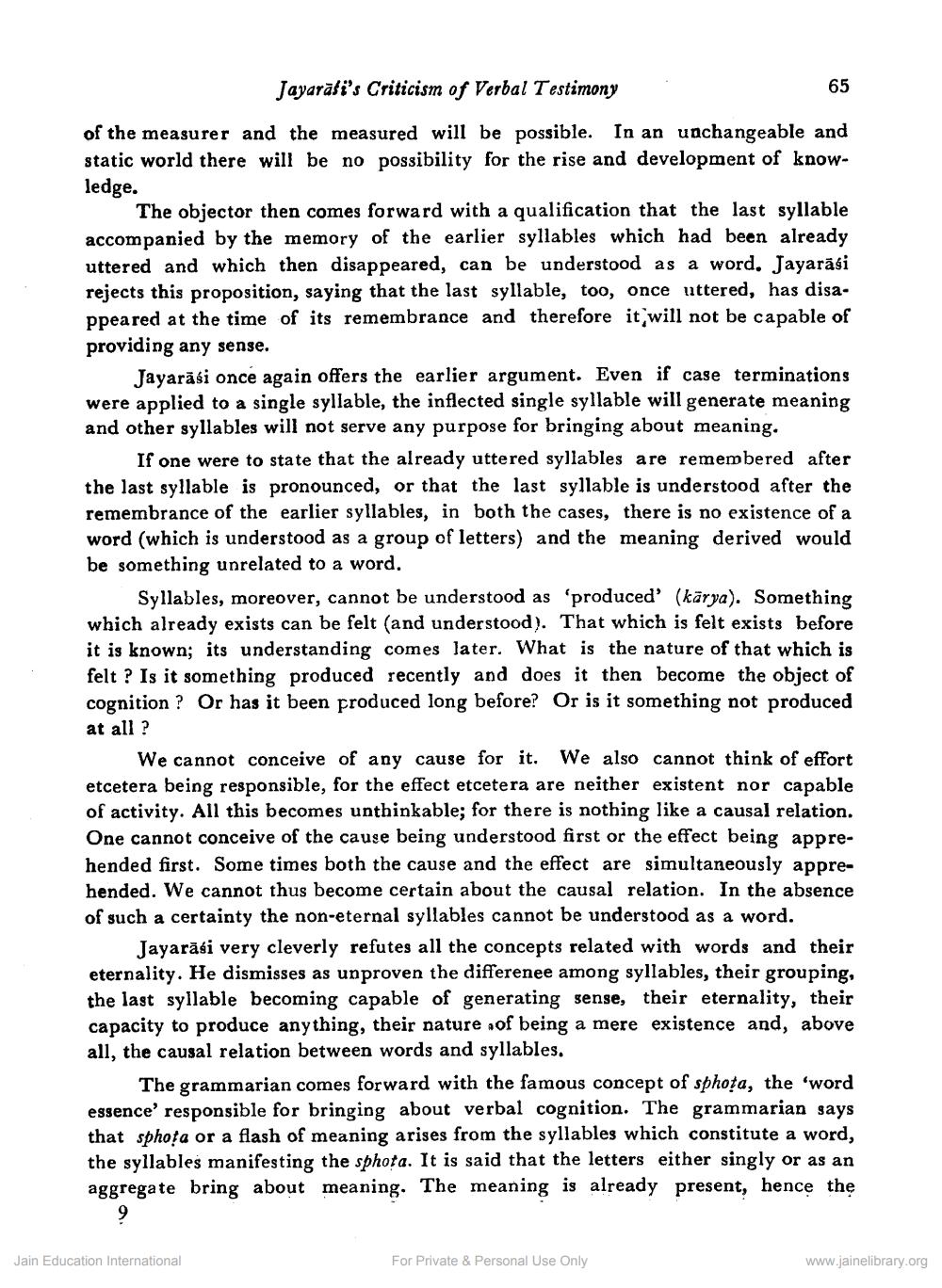________________
Jayarāfi's Criticism of Verbal Testimony
65 of the measurer and the measured will be possible. In an unchangeable and static world there will be no possibility for the rise and development of knowledge.
The objector then comes forward with a qualification that the last syllable accompanied by the memory of the earlier syllables which had been already uttered and which then disappeared, can be understood as a word. Jayarāśi rejects this proposition, saying that the last syllable, too, once uttered, has disappeared at the time of its remembrance and therefore it will not be capable of providing any sense.
Jayarāśi once again offers the earlier argument. Even if case terminations were applied to a single syllable, the inflected single syllable will generate meaning and other syllables will not serve any purpose for bringing about meaning.
If one were to state that the already uttered syllables are remembered after the last syllable is pronounced, or that the last syllable is understood after the remembrance of the earlier syllables, in both the cases, there is no existence of a word (which is understood as a group of letters) and the meaning derived would be something unrelated to a word.
Syllables, moreover, cannot be understood as 'produced' (kärya). Something which already exists can be felt (and understood). That which is felt exists before it is known; its understanding comes later. What is the nature of that which is felt ? Is it something produced recently and does it then become the object of cognition ? Or has it been produced long before? Or is it something not produced at all ?
We cannot conceive of any cause for it. We also cannot think of effort etcetera being responsible, for the effect etcetera are neither existent nor capable of activity. All this becomes unthinkable; for there is nothing like a causal relation. One cannot conceive of the cause being understood first or the effect being apprehended first. Some times both the cause and the effect are simultaneously apprehended. We cannot thus become certain about the causal relation. In the absence of such a certainty the non-eternal syllables cannot be understood as a word.
Jayarāgi very cleverly refutes all the concepts related with words and their eternality. He dismisses as unproven the differenee among syllables, their grouping, the last syllable becoming capable of generating sense, their eternality, their capacity to produce anything, their nature of being a mere existence and, above all, the causal relation between words and syllables.
The grammarian comes forward with the famous concept of sphota, the 'word essence' responsible for bringing about verbal cognition. The grammarian says that sphoța or a flash of meaning arises from the syllables which constitute a word, the syllables manifesting the sphota. It is said that the letters either singly or as an aggregate bring about meaning. The meaning is already present, hence the
Jain Education International
For Private & Personal Use Only
www.jainelibrary.org




